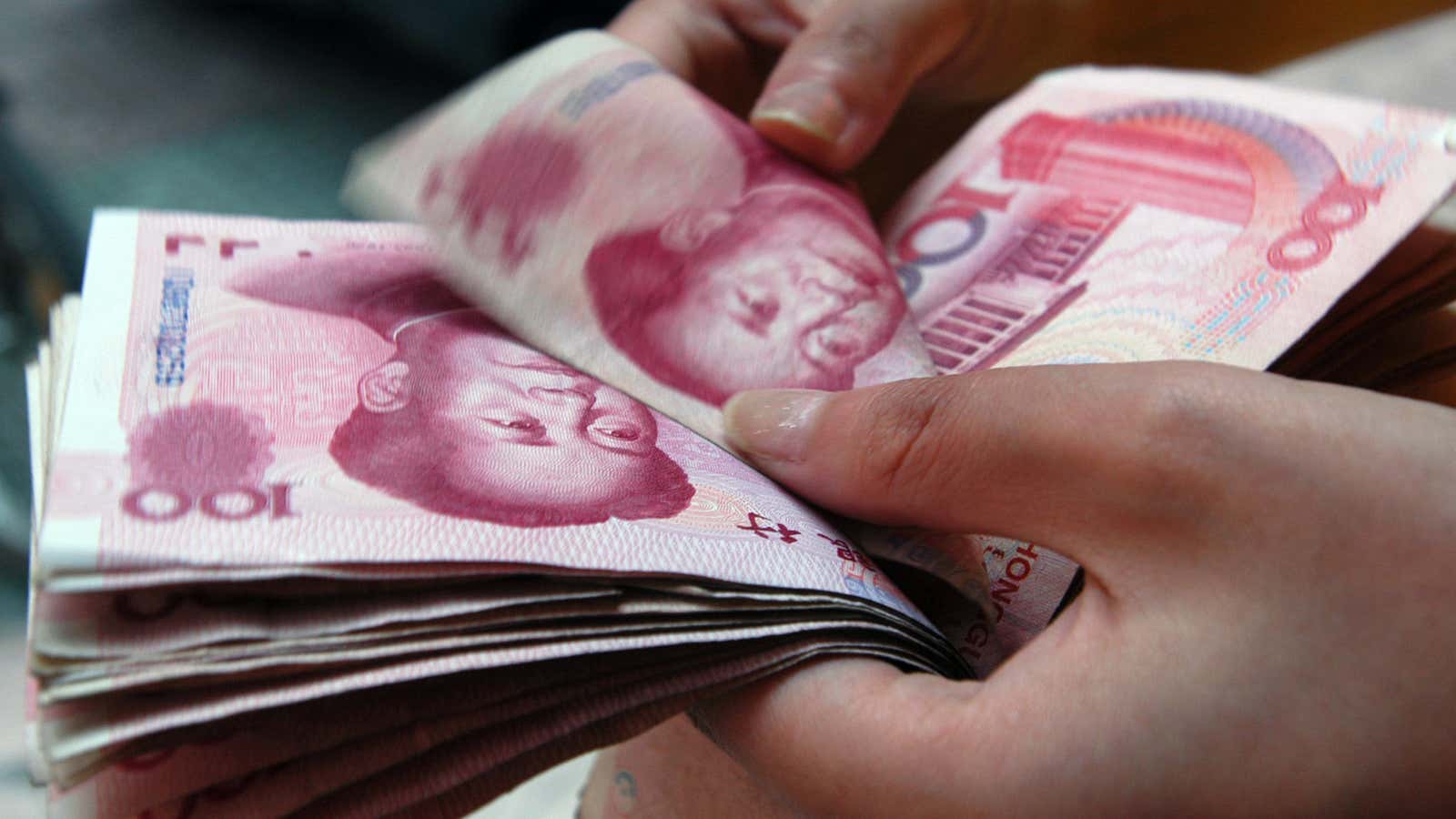China’s digital yuan is still in its infancy, but the virtual currency is already being faked.
That’s according to Mu Changchun, the head of the Chinese central bank’s digital currency research institute, in a speech on the digital yuan’s progress, and how policy makers expect it to get along with existing private digital wallets.
“We have spotted counterfeit digital yuan wallets in the market. Just like in the era of paper currencies, the central bank also has the task of fighting forgery [of the digital yuan],” said Mu (link in Chinese) at a financial forum in Shanghai yesterday (Oct. 25).
Mu’s comment offered an important reminder of the difference between cryptocurrencies and the digital yuan. Transactions involving cryptocurrencies like bitcoin do not need to be verified by centralized intermediaries such as banks because all transactions are indelibly stored on a blockchain, or a digital ledger, offering a decentralized way to prevent fraud. China’s new digital currency, however, is backed by the country’s central bank and all transactions must be verified by it.
Chinese authorities, like those elsewhere, have long waged a war against counterfeiters. Earlier this year, police seized 422 million yuan ($59.5 million) of counterfeit money, the largest amount ever seized in one go. Clearly that battle will continue with the digital yuan, which is yet to be rolled out nationally.
When it is, Chinese policy makers hope it will offer more insight into consumer spending, and more direct control over the money supply. China also hopes it might improve the currency’s global use.
China recently carried out its largest-ever pilot of the digital yuan in the southern tech hub of Shenzhen, which gifted 50,000 randomly selected people the virtual currency to use.
A Shenzhen women, who declined to give her name, told Quartz she paid for the first time with the digital currency at a restaurant, and found the process smooth. “It was as quick as when I use Alipay,” she said, referring to one of China’s two largest mobile payment apps, with the other being WeChat Pay under Tencent.
Despite the largely positive user feedback of the digital currency, Mu emphasized that Beijing won’t use forceful administrative measures to push its use, but would adopt a market-oriented approach.
“How much digital yuan citizens need, we will issue the corresponding amount. As long as people still need paper yuan, we will continue to issue it. The two will co-exist for a very long time in my personal opinion,” he said.
Mu also clarified rumors that the digital currency cannot be used to buy gold or exchange foreign currencies, saying the currency is equal to paper yuan, and can be used to purchase anything the paper version can.
One major question surrounding the digital yuan is its impact on Alipay and WeChat Pay, who could potentially lose users to the government’s digital wallet. Alipay parent Ant Group—the “Amazon of money”—which is gearing up for a $34 billion dual listing in Hong Kong and Shanghai next week, said in an IPO filing that it does not “have sufficient visibility” to assess the impact of the digital yuan on the payment industry and consumer behavior.
Mu acknowledged the acute public interest in this issue and said there is no direct competition between the two and the digital yuan.
“The digital yuan serves as a pure currency, while the mobile payment giants mainly provide infrastructure, i.e. their ‘wallets’ to accommodate the digital yuan…Users can keep using the two mobile payment tools after the adoption of digital yuan,” said Mu.
